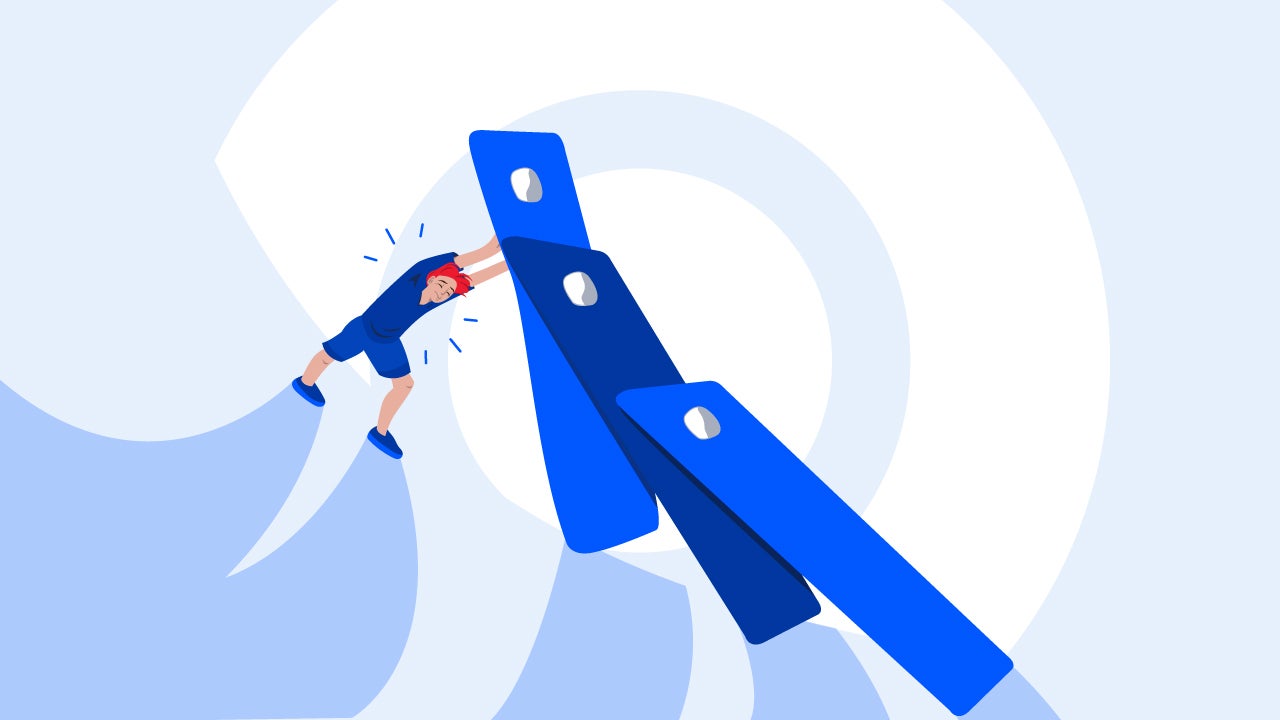Feeling hopeless about debt? These steps can help



When you’re paying off debt over a long time, it may feel like there’s no end in sight. Roadblocks to repayment, tough financial times and other setbacks may make you feel like you’re not making enough progress towards paying off your debt or that you’ll be in debt forever.
While that’s very likely not the case – and many resources can help you pay off your debt – the feelings of fatigue, hopelessness and overwhelm can easily take over and paralyze your ability to think clearly and make moves forward. If you’re finding yourself in this situation, here are some clear steps you can take to overcome this mindset and get on the path to resolving your debt.
1. Acknowledge your feelings as valid
It is common to feel fatigued after making debt payments for a long time. Even when you have a timeline in place, being in debt for a long time may take a mental toll.
Debt stress and fatigue can hurt your mental health. According to a Bankrate survey, 47 percent of respondents cited debt as having a negative impact on their mental health. In the same survey, 29 percent of respondents said money had a negative impact on their mental health daily. So, these feelings are likely more common than you think.
Acknowledging your debt fatigue as valid may help you address your feelings around your debt and manage your mental health as you move forward with your repayment plan.
2. Evaluate your timeline
Building a payoff timeline will give you a clear end in sight to work towards. By having a goal in mind, you can reassure yourself that you can pay off your debt and help stick to your repayment plan.
You can come up with a repayment plan by using a payoff calculator and plugging in your monthly payments. Experiment with different payoff methods and payment amounts to see what can pay off your debt quickest and save you on the most interest.
A higher payment may mean you have a tighter budget for a while. However, it can significantly shorten your repayment timeline and help relieve some of the stress and fatigue you may feel.
Having a timeline can also help you adjust when an emergency happens. If you have to reduce or pause your payments because you lost your job or had to pay for an unexpected expense, you should adjust your timeline accordingly with your new or deferred payment. This way, you can still have an end in sight, even when facing a setback.
3. Change your approach
If you feel you’re not making enough progress toward paying off your debt, you may want to switch up your strategy. There are more effective ways to pay off your debt than making the minimum monthly payment.
Firstly, check your budget and see if you can allocate more money toward your debt payments. While you don’t have to completely cut out every non-essential expense, if you can adjust some spending areas and allocate more money to your debt payments, you can pay off your balance after.
You can strategize your repayments to have more impact if you have multiple debts. The debt snowball method, for example, focuses your maximum payments on your smallest balances and rolls them into your larger balances as you pay off each debt. This way, you can save on interest from your paid-down balances.
The avalanche method, on the other hand, focuses your payments on the debt with the highest rate, saving you on compounding interest as you reduce your balance.
Another couple of options to consider if you have multiple debts are consolidating or using a balance transfer card. Consolidating multiple debts can sometimes simplify your payment and give you a better interest rate. It’s best to plug your rates into a calculator and make sure you’re not paying more in interest.
A balance transfer card with a low or 0 percent introductory rate can buy you a bit of time since you’ll have a period with a low interest rate in which you can pay off your debt. Once the introductory period ends, you’ll be back to paying interest. Balance transfer cards also generally require a good or excellent credit score.
Which option is best for you depends on your circumstances. Generally, you want to choose whichever will help you make more progress on your repayment plan.
4. Find help
You don’t have to pay off your debt alone. There are several avenues through which you can find help, pay off your debt and manage your finances.
Many resources are available on a local, state and federal level that can help you save money and offer financial aid.
The Supplemental Nutrition Assistance Program (SNAP) can help cover costs for certain types of groceries and essentials if you qualify based on income. You can also visit food pantries and community food stores if you’re struggling with debt repayments and grocery costs.
Free vaccination clinics and checkup services can help you save on healthcare costs, alongside state and federal aid programs that offer assistance with prescriptions, insurance and other medical expenses.
Building an external support network of friends, family and colleagues can help you save money and provide a fallback option if times get tough. Sharing resources by carpooling, splitting bulk groceries, helping out with home projects, and a rotating childcare roster can all help you save money to contribute to debt and build a community that you can rely on.
5. Focus on your mental health
Feeling hopeless about your debt isn’t an uncommon feeling. Managing your mental health is an important part of your debt repayment journey, especially as debt can impact your attitude and habits around finances.
Respondents to a National Debt Relief survey reported losing an average of over 200 hours of sleep per year — or over 30 minutes nightly — because of their debts.
Being on a tight budget for a while and preventing yourself from attending fun events or spending money on fun things can be tiring. Finally, if you have a large debt, you may feel your balance is overwhelming.
You may want to consider seeking professional help if your debt is truly impacting your mental health. Speaking to a mental health specialist, such as a financial therapist, can help you address the mental toll debt may be taking on you and find a holistic solution that can help.
6. Consider debt relief
If you’re feeling overwhelmed by the amount of debt you’re in or are struggling to make payments, you may want to consider working with a debt relief company.
Debt relief can help reduce your balance and your monthly payments by negotiating down the amount you owe with your creditors. This way, you can set your monthly payments to a more affordable amount and build an achievable repayment timeline.
National Debt Relief, for example, pairs you with a certified debt specialist who can help you build a more affordable payment plan as your debt balance is negotiated. National Debt Relief offers a comprehensive debt relief service that not only accounts for your debt balance but also your lifestyle and future goals.
While debt relief isn’t the only solution you should consider, it can be a valuable tool to help you manage your debt and pay it off in a reasonable time.
What next?
If you’re feeling fatigued about paying off your debt, you’re in good company. However, you don’t have to feel like paying off your debt is impossible. By building out a timeline, tackling your debt payments strategically and leveraging resources like debt relief, you can pay off your debt and take control of your finances.
If you want to learn more about managing your finances, mental health and debt repayment plan, check out Bankrate and National Debt Relief’s ongoing article series about all things debt. Watch this space for tips, tricks and exclusive stories from readers like you and their debt repayment journeys.
Why we ask for feedback Your feedback helps us improve our content and services. It takes less than a minute to complete.
Your responses are anonymous and will only be used for improving our website.







